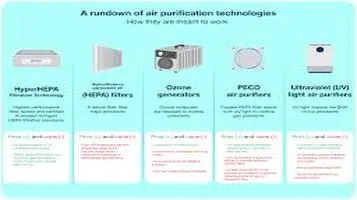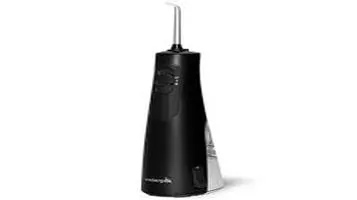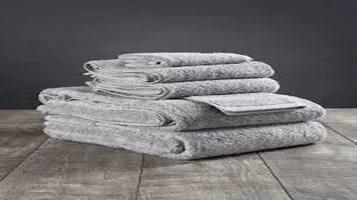HEPA Filters: The Gold Standard in Air Filtration
HEPA filters, or High-Efficiency Particulate Air filters, are advanced air filtration systems designed to trap and remove tiny particles from the air, boasting an efficiency rate of 99.97% for particles as small as 0.3 microns. They are composed of a dense mat of randomly arranged fibers, typically made from fiberglass, which captures pollutants such as dust, pollen, mold spores, and even some bacteria and viruses. Widely used in environments requiring stringent air quality, such as hospitals, laboratories, and cleanrooms, HEPA filters are also popular in residential and commercial air purifiers and HVAC systems. By significantly reducing airborne contaminants, HEPA filters contribute to healthier indoor air, making them essential for those with allergies or respiratory conditions.

In an era where air quality is an increasing concern, HEPA filters have emerged as a crucial technology in the quest for cleaner, healthier environments. HEPA, an acronym for High-Efficiency Particulate Air, represents a standard of air filtration that is highly respected for its efficacy. This review delves into the mechanics, benefits, and applications of HEPA filters, providing a comprehensive overview of why they are considered the gold standard in air filtration.
Understanding HEPA Filters
HEPA filters are designed to capture at least 99.97% of airborne particles that are 0.3 microns in diameter. This size is often referred to as the "most penetrating particle size" (MPPS) because particles of this size are the most difficult to capture. The efficiency of HEPA filters extends to particles both smaller and larger than 0.3 microns, making them highly effective against a wide range of contaminants, including dust, pollen, mold spores, pet dander, bacteria, and some viruses.
The construction of a HEPA filter involves a dense mat of randomly arranged fibers, typically composed of fiberglass. The spacing of these fibers is what allows the filter to capture such small particles. Air passes through the filter, and particles are trapped through a combination of diffusion, interception, and impaction. This intricate mechanism ensures that even the tiniest pollutants are removed from the air.
Benefits of HEPA Filters
1. Improved Air Quality
Perhaps the most significant benefit of HEPA filters is their ability to drastically improve indoor air quality. In homes, offices, and industrial settings, HEPA filters can reduce the presence of allergens and pollutants, leading to a healthier environment. This is particularly beneficial for individuals with respiratory conditions such as asthma or allergies, as cleaner air can lead to fewer symptoms and improved overall health.
2. Versatility
HEPA filters are versatile and can be found in various applications, from household vacuum cleaners and air purifiers to industrial cleanrooms and medical facilities. Their widespread use underscores their reliability and effectiveness. In healthcare settings, HEPA filters are crucial in maintaining sterile environments, preventing the spread of infectious diseases.
3. Long-Term Cost Efficiency
While HEPA filters can be more expensive upfront compared to standard filters, their long-term cost efficiency is notable. Their high efficiency means that they do not need to be replaced as frequently, and they help maintain the longevity of HVAC systems by keeping them cleaner. Over time, the benefits of reduced maintenance and improved air quality outweigh the initial investment.
4. Environmental Impact
By capturing a significant percentage of airborne pollutants, HEPA filters contribute to a reduction in environmental contamination. They help in controlling the spread of particulate matter, which can have far-reaching effects on the environment and public health. Moreover, many HEPA filters are designed to be disposable in an environmentally responsible manner, further mitigating their impact.
Applications of HEPA Filters
1. Residential Use
In homes, HEPA filters are commonly found in air purifiers, vacuum cleaners, and HVAC systems. They help in creating a clean and safe living environment by reducing indoor air pollution. For pet owners, HEPA filters are particularly useful in controlling pet dander and associated allergens.
2. Healthcare
In hospitals and clinics, HEPA filters are indispensable. They are used in isolation rooms, operating theaters, and other critical areas to prevent the spread of infectious agents. The ability of HEPA filters to capture bacteria and viruses makes them a key component in infection control protocols.
3. Industrial and Commercial Settings
HEPA filters play a vital role in various industrial and commercial applications. In cleanrooms, essential for the manufacturing of electronics, pharmaceuticals, and other sensitive products, HEPA filters maintain extremely low levels of particulate contamination. In commercial buildings, they contribute to a healthier work environment by improving overall air quality.
4. Transportation
The use of HEPA filters is also prevalent in transportation, particularly in aircraft. Cabin air filtration systems equipped with HEPA filters ensure that passengers breathe cleaner air, which is especially important given the confined nature of airplane cabins.
Limitations and Considerations
Despite their numerous advantages, HEPA filters are not without limitations. They can be more expensive than standard filters, both in terms of initial cost and maintenance. Additionally, while HEPA filters are highly effective against particulate matter, they do not capture gases, fumes, or odors. For comprehensive air purification, they often need to be used in conjunction with activated carbon filters or other technologies.
Another consideration is airflow resistance. The dense fiber mat of a HEPA filter can impede airflow, which may require more powerful fans or blowers, leading to higher energy consumption.
Conclusion
HEPA filters represent a pinnacle of air filtration technology, offering unmatched efficiency in capturing airborne particles. Their widespread application across various sectors, from residential to industrial, underscores their importance in promoting healthier environments. While they come with certain limitations, the benefits of improved air quality, long-term cost efficiency, and versatility far outweigh these drawbacks. As concerns about air quality continue to grow, HEPA filters will undoubtedly remain an essential tool in our efforts to breathe cleaner, healthier air.






